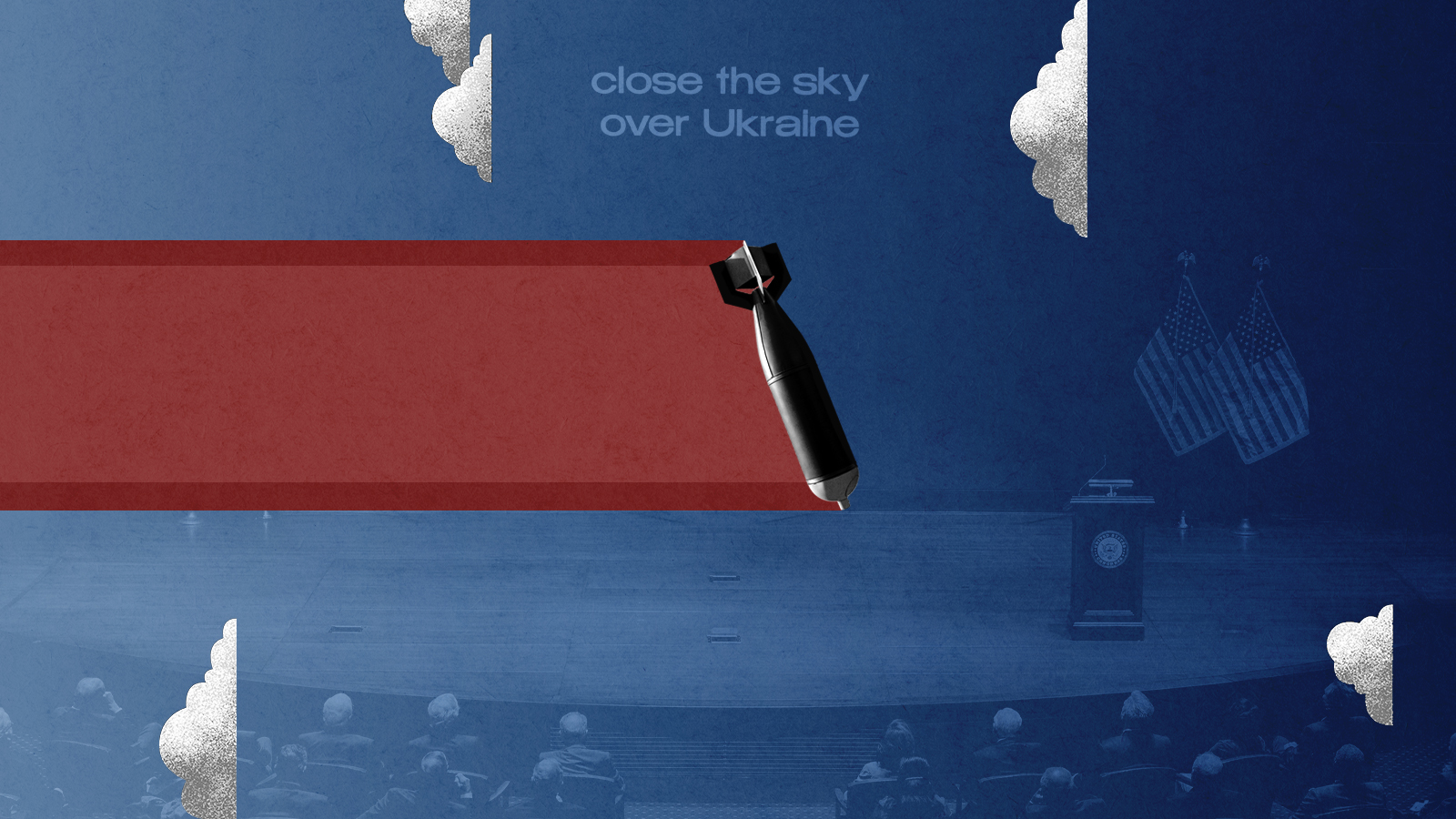Nuclear war isn't just diplomacy continued by other means


A free daily email with the biggest news stories of the day – and the best features from TheWeek.com
You are now subscribed
Your newsletter sign-up was successful
The United States has had several wars end badly over the last two decades, with the last clear-cut success being the Persian Gulf War over 30 years ago. But the relative weakness of our adversaries and their inability to project military force against the U.S. homeland — whatever we claimed about their weapons of mass destruction prior to invading — has shaped how a lot of people who should know better think of war. Engaging militarily has become just another policy option, like raising or cutting taxes and setting the minimum wage.
Responding to Ukrainian President Volodymyr Zelensky's impassioned pleas on behalf of his people, lawmakers and commentators weighed in, arguing that the only question is the speed with which these requests can be fulfilled.
"When Ukraine asks, our response should be 'how fast can we get it there?' not 'how will the lawyers explain this?'" Sen. Ben Sasse (R-Neb.) said in a statement. "Zelensky needs more, and America can do more."
The Week
Escape your echo chamber. Get the facts behind the news, plus analysis from multiple perspectives.

Sign up for The Week's Free Newsletters
From our morning news briefing to a weekly Good News Newsletter, get the best of The Week delivered directly to your inbox.
From our morning news briefing to a weekly Good News Newsletter, get the best of The Week delivered directly to your inbox.
Rep. Elise Stefanik, the third-ranking Republican in the House, said of the disputed Polish warplanes, "Ukrainian people need those MiGs and need them now."
Michael McFaul, a former U.S. ambassador to Russia during the Obama administration, echoed this sentiment. "Maybe [Zelensky] knows best?" McFaul asked in a since-deleted tweet. "Who are we to tell him differently? So arrogant."
"We" are only the ones being asked to risk a nuclear war on Ukraine's behalf. Even short of that, "we" have the prerogative to assess our own national security interests, too. And "we" don't just bear moral responsibility for what happens if we don't provide certain types of assistance to Ukraine, but also what happens if we do in a way that prolongs the war and leads to more Ukrainian deaths.
McFaul received considerable pushback, but the White House press corps is asking daily why the president is ruling out various escalatory steps. One reporter demanded to know why Russian President Vladimir Putin was "told at the outset he would never face military intervention by the United States and NATO."
A free daily email with the biggest news stories of the day – and the best features from TheWeek.com
While there was no shortage of heated rhetoric during the Cold War, this is the type of thinking that takes hold when avoidance of nuclear war need not be a major consideration before an intervention. But what was true of Afghanistan, however ineffectual many of our efforts there were, isn't true here.
W. James Antle III is the politics editor of the Washington Examiner, the former editor of The American Conservative, and author of Devouring Freedom: Can Big Government Ever Be Stopped?.
-
 How Democrats are turning DOJ lemons into partisan lemonade
How Democrats are turning DOJ lemons into partisan lemonadeTODAY’S BIG QUESTION As the Trump administration continues to try — and fail — at indicting its political enemies, Democratic lawmakers have begun seizing the moment for themselves
-
 ICE’s new targets post-Minnesota retreat
ICE’s new targets post-Minnesota retreatIn the Spotlight Several cities are reportedly on ICE’s list for immigration crackdowns
-
 ‘Those rights don’t exist to protect criminals’
‘Those rights don’t exist to protect criminals’Instant Opinion Opinion, comment and editorials of the day
-
 ‘Those rights don’t exist to protect criminals’
‘Those rights don’t exist to protect criminals’Instant Opinion Opinion, comment and editorials of the day
-
 ‘The mark’s significance is psychological, if that’
‘The mark’s significance is psychological, if that’Instant Opinion Opinion, comment and editorials of the day
-
 Big-time money squabbles: the conflict over California’s proposed billionaire tax
Big-time money squabbles: the conflict over California’s proposed billionaire taxTalking Points Californians worth more than $1.1 billion would pay a one-time 5% tax
-
 ‘The West needs people’
‘The West needs people’Instant Opinion Opinion, comment and editorials of the day
-
 ‘The censorious effect is the same, even if deployed covertly’
‘The censorious effect is the same, even if deployed covertly’Instant Opinion Opinion, comment and editorials of the day
-
 Vietnam’s ‘balancing act’ with the US, China and Europe
Vietnam’s ‘balancing act’ with the US, China and EuropeIn the Spotlight Despite decades of ‘steadily improving relations’, Hanoi is still ‘deeply suspicious’ of the US as it tries to ‘diversify’ its options
-
 ‘The sport is still run on a shoestring’
‘The sport is still run on a shoestring’Instant Opinion Opinion, comment and editorials of the day
-
 Did Alex Pretti’s killing open a GOP rift on guns?
Did Alex Pretti’s killing open a GOP rift on guns?Talking Points Second Amendment groups push back on the White House narrative
